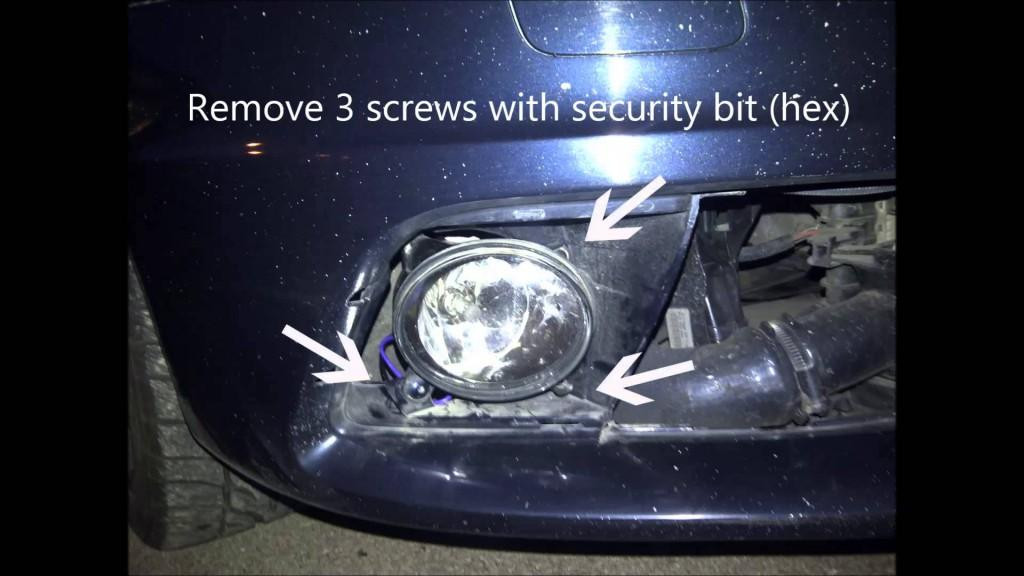How Much To Fix AC Compressor In Car
Fixing your car’s AC compressor involves costs that vary depending on several factors. CARDIAGTECH.NET is here to help you understand these costs, explore solutions, and even consider DIY options. Get ready to discover ways to keep your car cool without breaking the bank, focusing on AC compressor replacement cost, AC repair services, and auto air conditioning repair.
1. Decoding the Costs of AC Compressor Repair
1.1 Factors Influencing the Price Tag
The cost to fix an AC compressor in a car is not a one-size-fits-all figure. Several elements contribute to the final price, ensuring you’re prepared for the investment needed to restore your car’s air conditioning.
- Vehicle Make and Model: The make and model of your car significantly influence the cost. Luxury or high-performance vehicles typically have more expensive parts and require specialized labor.
- Part Availability: The availability of AC compressor parts can also affect the cost. Rare or imported car models may have limited parts availability, leading to higher prices.
- Labor Costs: Labor costs vary widely by location and mechanic experience. Urban areas and dealerships usually have higher labor rates compared to rural areas or independent shops.
- Compressor Type: The type of AC compressor needed (new, rebuilt, or aftermarket) will impact the cost. New compressors are the most expensive but offer the best reliability, while rebuilt or aftermarket options are more affordable but may have a shorter lifespan.
1.2 Average Cost Range: What to Expect
The average cost to fix an AC compressor in a car typically ranges from $400 to $1200. This estimate includes the cost of the compressor, refrigerant, and labor. Here’s a breakdown:
| Component | Average Cost |
|---|---|
| AC Compressor | $200 – $800 |
| Refrigerant | $50 – $200 |
| Labor | $150 – $400 |
| Total Estimated Cost | $400 – $1200 |
These prices are estimates and can vary based on location, vehicle type, and specific repair shop rates.
1.3 New vs. Rebuilt Compressors: Weighing Your Options
Choosing between a new and rebuilt AC compressor is a pivotal decision, balancing cost savings with reliability. New compressors provide peace of mind with a longer lifespan and warranty, while rebuilt compressors offer an economical alternative with a shorter warranty and potential for earlier failure.
- New Compressors:
- Pros: Higher reliability, longer lifespan, and comprehensive warranty.
- Cons: Higher upfront cost.
- Rebuilt Compressors:
- Pros: Lower cost, environmentally friendly.
- Cons: Shorter lifespan, limited warranty, potential for lower performance.
1.4 Additional Costs to Consider
When budgeting for AC compressor repair, remember to factor in potential additional costs that might arise during the process. Addressing these hidden expenses ensures no surprises during the repair.
- Additional Parts: Replacing the AC compressor may require new components such as the receiver drier, expansion valve, or hoses.
- Diagnostic Fees: Many shops charge a diagnostic fee to identify the exact problem. This fee can range from $50 to $150 but is often waived if you proceed with the repair at the same shop.
- Refrigerant Recharge: After replacing the compressor, the AC system must be recharged with refrigerant. The cost varies depending on the type and amount of refrigerant needed.
- Taxes and Fees: Don’t forget to include sales tax and any disposal fees for old parts and refrigerant.
2. Navigating the Repair Process
2.1 Symptoms of a Failing AC Compressor
Recognizing the signs of a failing AC compressor early can save you from more extensive and costly repairs. Being vigilant about these symptoms allows for prompt action.
- Weak or No Cold Air: One of the most obvious signs is a decrease in the AC system’s ability to produce cold air.
- Unusual Noises: Grinding, squealing, or rattling noises when the AC is turned on can indicate internal compressor damage.
- Clutch Problems: The AC compressor clutch may fail to engage or disengage properly, leading to inconsistent cooling.
- Leaking Refrigerant: Visible leaks or oily residue around the compressor can indicate a refrigerant leak, which affects the compressor’s performance.
- Overheating: A failing compressor can cause the engine to overheat due to the added strain.
2.2 The AC Compressor Replacement Procedure
Understanding the AC compressor replacement procedure helps you appreciate the labor involved and ensures the job is done correctly.
- Diagnostic Inspection:
- A technician inspects the AC system to confirm the compressor is the issue and checks for any other problems.
- Refrigerant Evacuation:
- The refrigerant is safely evacuated from the system using specialized equipment to comply with environmental regulations.
- Component Removal:
- The old AC compressor, along with any related parts like the receiver drier and expansion valve, are removed.
- System Flush:
- The AC system is flushed to remove any debris or contaminants that could damage the new compressor.
- New Compressor Installation:
- The new or rebuilt AC compressor is installed, along with the new receiver drier and expansion valve.
- Refrigerant Recharge:
- The AC system is recharged with the correct type and amount of refrigerant.
- Performance Testing:
- The system is tested to ensure it produces cold air and operates efficiently.
2.3 DIY vs. Professional Repair: Which Route to Take?
Deciding whether to tackle the AC compressor repair yourself or hire a professional depends on your mechanical skills, tools, and comfort level. Each option has its advantages and disadvantages.
- DIY Repair:
- Pros: Cost savings on labor, satisfaction of doing it yourself.
- Cons: Requires technical knowledge, specialized tools, and proper disposal of refrigerant.
- Professional Repair:
- Pros: Ensures correct installation, warranty on parts and labor, proper refrigerant handling.
- Cons: Higher cost due to labor charges.
2.4 Selecting a Reputable Repair Shop
Choosing a reputable repair shop is essential for ensuring a high-quality AC compressor repair. Look for shops with experienced technicians, positive reviews, and transparent pricing.
- Check Online Reviews: Read reviews on sites like Google, Yelp, and the Better Business Bureau to gauge the shop’s reputation.
- Ask for Referrals: Seek recommendations from friends, family, or online forums.
- Verify Certifications: Ensure the shop employs certified technicians with experience in AC system repair.
- Get a Written Estimate: Obtain a detailed written estimate before authorizing any work.
- Inquire About Warranty: Ask about the warranty on parts and labor to protect your investment.
3. Cost-Saving Strategies
3.1 Sourcing Your Own Parts
Purchasing the AC compressor and related parts yourself can potentially save money, but it requires careful research and consideration of warranty implications.
- Online Retailers: Websites like Amazon, eBay, and specialized auto parts stores offer competitive prices on AC compressors.
- Local Auto Parts Stores: Local stores like AutoZone, Advance Auto Parts, and O’Reilly Auto Parts provide parts with the convenience of immediate availability.
- Research Brands and Reviews: Before buying, research different brands and read reviews to ensure you’re getting a quality part.
- Check Compatibility: Verify the part is compatible with your vehicle’s make, model, and year to avoid fitment issues.
- Consider Warranty: Be aware that using your own parts may affect the repair shop’s warranty on labor.
3.2 Seeking Multiple Estimates
Getting multiple estimates from different repair shops is a smart way to compare prices and ensure you’re getting a fair deal.
- Call Multiple Shops: Contact several shops in your area and ask for an estimate on the AC compressor repair.
- Provide Detailed Information: Give each shop the same detailed information about your vehicle and the symptoms you’re experiencing.
- Compare Estimates: Carefully compare the estimates, paying attention to the cost of parts, labor, and any additional services.
- Ask About Discounts: Inquire about any available discounts, such as those for AAA members, seniors, or military personnel.
3.3 Seasonal Specials and Promotions
Many auto repair shops offer seasonal specials and promotions on AC services, particularly during the spring and summer months.
- Check Local Listings: Keep an eye on local listings, newspaper ads, and shop websites for special offers.
- Sign Up for Newsletters: Subscribe to email newsletters from local repair shops to receive notifications about upcoming promotions.
- Ask Directly: When calling for an estimate, ask if there are any current specials on AC repairs.
3.4 Opting for a Rebuilt Compressor
Choosing a rebuilt AC compressor over a new one can significantly reduce the cost of the repair. However, consider the trade-offs in terms of reliability and warranty.
- Research Reputable Brands: Look for rebuilt compressors from reputable brands that offer a warranty.
- Check Warranty Terms: Carefully review the warranty terms to understand what is covered and for how long.
- Ask About Core Charge: Some shops may offer a discount if you return the old compressor as a core.
4. AC Compressor Maintenance and Prevention
4.1 Regular AC System Checks
Regular AC system checks can help identify and address potential problems early, preventing costly compressor failures.
- Visual Inspection: Periodically inspect the AC compressor, hoses, and connections for signs of leaks or damage.
- Temperature Check: Monitor the temperature of the air coming from the vents to ensure the system is cooling effectively.
- Listen for Unusual Noises: Pay attention to any unusual noises, such as grinding or squealing, when the AC is turned on.
4.2 Refrigerant Recharge and Leak Detection
Maintaining the proper refrigerant level is crucial for optimal AC system performance. Regular recharges and leak detection can prevent compressor damage.
- Refrigerant Recharge: Have the refrigerant level checked and recharged as needed, typically every 2-3 years.
- Leak Detection: If you notice a decrease in cooling performance, have the system checked for leaks.
4.3 Proper Usage and Driving Habits
How you use your car’s AC system and your driving habits can impact the compressor’s lifespan.
- Avoid Max AC: Avoid using the maximum AC setting unnecessarily, as it puts extra strain on the compressor.
- Regular Usage: Use the AC system regularly, even during cooler months, to keep the compressor lubricated.
- Gentle Acceleration: Avoid aggressive acceleration, which can overload the compressor.
4.4 Importance of Cabin Air Filters
Replacing the cabin air filter regularly helps keep the AC system clean and efficient, preventing debris from damaging the compressor.
- Replacement Schedule: Replace the cabin air filter every 12,000 to 15,000 miles or as recommended by your vehicle’s manufacturer.
- Benefits of Clean Filters: Clean filters improve airflow, enhance cooling performance, and reduce the risk of compressor damage.
5. Common Issues Beyond the Compressor
5.1 Condenser Problems and Solutions
The condenser dissipates heat from the refrigerant. Issues can lead to reduced AC performance.
- Symptoms: Overheating, reduced cooling, leaks.
- Solutions: Cleaning, repair, or replacement.
5.2 Evaporator Issues and Solutions
The evaporator cools the air before it enters the cabin. Problems affect cooling efficiency.
- Symptoms: Musty odors, weak airflow, icing.
- Solutions: Cleaning, repair, or replacement.
5.3 Expansion Valve or Orifice Tube Malfunctions
These components regulate refrigerant flow. Malfunctions can disrupt cooling.
- Symptoms: Poor cooling, freezing, fluctuating temperatures.
- Solutions: Replacement.
5.4 Electrical Issues and Solutions
Electrical problems can prevent the AC system from functioning correctly.
- Symptoms: AC not turning on, intermittent operation, blown fuses.
- Solutions: Diagnose and repair wiring, replace fuses, or replace faulty switches.
6. Warranty and Insurance Coverage
6.1 Understanding AC Compressor Warranties
AC compressor warranties can offer financial protection against premature failures.
- Types of Warranties: Manufacturer’s warranty, extended warranty, repair shop warranty.
- Coverage: Varies depending on the warranty type and terms.
6.2 Extended Warranties and Their Value
Extended warranties can provide coverage beyond the manufacturer’s warranty period.
- Benefits: Peace of mind, protection against unexpected repairs.
- Considerations: Cost, coverage terms, and deductible.
6.3 Insurance Coverage for AC Repairs
Standard auto insurance policies typically don’t cover AC repairs unless they are the result of an accident.
- Accident Coverage: If the AC compressor is damaged in an accident, it may be covered by your collision insurance.
- Comprehensive Coverage: Comprehensive coverage may cover AC repairs if they are caused by events like theft or vandalism.
7. Case Studies: Real-World Repair Costs
7.1 Case Study 1: Honda Civic AC Compressor Replacement
- Vehicle: 2015 Honda Civic
- Problem: AC compressor failure
- Solution: Replaced AC compressor, receiver drier, and refrigerant
- Cost Breakdown:
- AC Compressor: $350
- Receiver Drier: $50
- Refrigerant: $80
- Labor: $250
- Total Cost: $730
7.2 Case Study 2: Ford F-150 AC Compressor Repair
- Vehicle: 2018 Ford F-150
- Problem: AC compressor clutch failure
- Solution: Replaced AC compressor and refrigerant
- Cost Breakdown:
- AC Compressor: $450
- Refrigerant: $100
- Labor: $300
- Total Cost: $850
7.3 Case Study 3: BMW 3 Series AC System Overhaul
- Vehicle: 2016 BMW 3 Series
- Problem: AC compressor failure and refrigerant leak
- Solution: Replaced AC compressor, receiver drier, expansion valve, and refrigerant
- Cost Breakdown:
- AC Compressor: $600
- Receiver Drier: $80
- Expansion Valve: $70
- Refrigerant: $120
- Labor: $400
- Total Cost: $1270
8. Future Trends in AC Compressor Technology
8.1 Electric Compressors in Hybrid and Electric Vehicles
Electric compressors are becoming increasingly common in hybrid and electric vehicles.
- Advantages: Improved efficiency, reduced emissions, and precise control.
- Considerations: Higher cost and specialized repair procedures.
8.2 Variable Displacement Compressors
Variable displacement compressors adjust their output based on cooling demand.
- Advantages: Enhanced efficiency, reduced wear, and improved comfort.
- Considerations: More complex design and higher repair costs.
8.3 Environmentally Friendly Refrigerants
New refrigerants with lower global warming potential are being developed to reduce the environmental impact of AC systems.
- Benefits: Reduced greenhouse gas emissions and compliance with environmental regulations.
- Considerations: Compatibility with existing systems and potential for higher cost.
9. Tools and Equipment for AC Compressor Repair
9.1 Essential Tools for DIY AC Repair
For DIY AC compressor repair, you’ll need a set of specialized tools.
- Manifold Gauge Set: To measure pressures in the AC system.
- Vacuum Pump: To evacuate air and moisture from the system.
- Refrigerant Recovery Machine: To safely recover refrigerant.
- AC Flush Kit: To clean the AC system.
- Wrench Set: To disconnect and tighten fittings.
9.2 High-Quality Tools Available at CARDIAGTECH.NET
CARDIAGTECH.NET offers a range of high-quality tools for automotive repair, ensuring precision and durability.
- Diagnostic Tools: Advanced diagnostic tools to accurately identify AC system issues.
- Refrigerant Handling Equipment: Reliable equipment for safe refrigerant recovery and recharge.
- Specialty Wrenches and Sockets: Specialty tools designed for AC system components.
9.3 Investing in Reliable Equipment for Long-Term Savings
Investing in reliable tools and equipment ensures accurate diagnosis and efficient repair, leading to long-term savings. CARDIAGTECH.NET provides tools that withstand rigorous use, reducing the need for frequent replacements.
9.4 Contact CARDIAGTECH.NET for Expert Advice
For advice on selecting the right tools and equipment for your AC compressor repair needs, contact CARDIAGTECH.NET at 276 Reock St, City of Orange, NJ 07050, United States or Whatsapp: +1 (641) 206-8880.
10. Frequently Asked Questions (FAQs)
10.1 How Long Does it Take to Fix an AC Compressor?
The time to fix an AC compressor varies, typically taking between 3 to 6 hours.
- Factors Affecting Time: Complexity of the system, accessibility of the compressor, and any additional repairs needed.
10.2 Can I Drive My Car with a Bad AC Compressor?
Driving with a bad AC compressor is possible but not recommended.
- Potential Problems: Reduced engine performance, overheating, and damage to other components.
10.3 What Causes an AC Compressor to Fail?
AC compressors fail due to several reasons.
- Common Causes: Refrigerant leaks, contamination, electrical issues, and wear and tear.
10.4 How Can I Tell if My AC Compressor is Bad?
Signs of a bad AC compressor include weak cooling, unusual noises, and clutch problems.
- Diagnostic Steps: Check refrigerant levels, listen for noises, and inspect the compressor clutch.
10.5 Is it Worth Fixing My Car’s AC?
Deciding whether to fix your car’s AC depends on several factors.
- Considerations: Age and condition of the vehicle, cost of repair, and your need for AC.
10.6 Can I Replace Just the AC Compressor Clutch?
Replacing just the AC compressor clutch is sometimes possible but not always cost-effective.
- Factors to Consider: Labor costs, condition of the compressor, and availability of parts.
10.7 What is the Difference Between an AC Compressor and a Condenser?
The AC compressor and condenser are different components with distinct functions.
- AC Compressor: Compresses and circulates refrigerant.
- Condenser: Dissipates heat from the refrigerant.
10.8 How Often Should I Service My Car’s AC System?
Servicing your car’s AC system every 2 to 3 years is recommended.
- Service Includes: Checking refrigerant levels, inspecting components, and cleaning the system.
10.9 Will a New AC Compressor Improve My Car’s Fuel Economy?
A new AC compressor can improve fuel economy.
- Benefits: More efficient operation, reduced engine strain, and better cooling.
10.10 What Refrigerant Does My Car Use?
Identifying the correct refrigerant is crucial for proper AC system function.
- Check Vehicle Specifications: Refer to your vehicle’s owner’s manual or the label on the AC system.
- Common Refrigerants: R-134a and R-1234yf.
Conclusion: Keeping Cool Without Breaking the Bank
Fixing your car’s AC compressor involves understanding various costs, maintenance practices, and potential issues. At CARDIAGTECH.NET, we provide the tools and expertise to ensure your AC repairs are efficient and cost-effective. Remember, regular maintenance, informed decisions, and quality equipment are your best allies in keeping cool on the road.
Don’t let AC compressor problems keep you sweating. Contact CARDIAGTECH.NET today at 276 Reock St, City of Orange, NJ 07050, United States or Whatsapp: +1 (641) 206-8880 for expert advice and reliable tools to get your AC system running smoothly.





